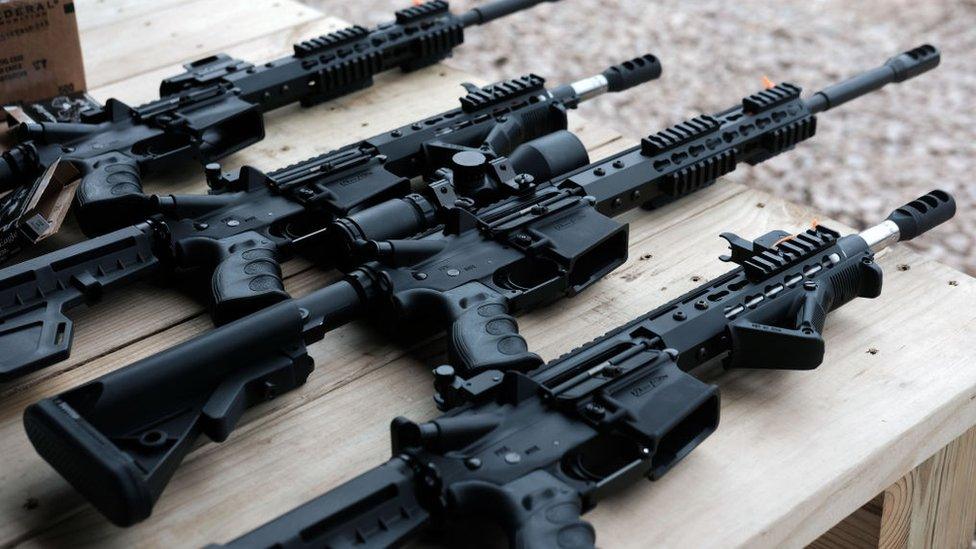US Supreme Court lets Illinois assault weapon ban stand - for now
- Published

AR-15 semi-automatic rifles are among several categories of guns and related items no longer for sale in Illinois
The US Supreme Court has declined to put a temporary hold on an Illinois law that bans the sale of assault-style weapons and a variety of other guns and accessories.
The law will require existing owners of the restricted items to register them by 1 January.
A gun rights group and the owner of a gun shop have sued to stop the implementation of the law.
Their case has consistently been rebuffed by lower courts.
The legislation took effect in January and sales of the restricted guns were stopped immediately.
The law, one of the most strict in the country, banned the sale of dozens of specific brands and types of weapons, including AR-15 and AK-47 rifles.
It also halted the sale of large capacity ammunition magazines and several types of accessories and attachments.
There are some exceptions for law enforcement officers, and those who already own assault-style weapons are allowed to keep them as long as they register them with state police.
The legislation was enacted after the 4 July 2022 mass shooting in Highland Park, just north of Chicago. Police say a man with a semi-automatic rifle shot more than 80 rounds into an Independence Day parade, killing seven people and injuring nearly 50.
After that attack, the assault-style weapons sale ban became a key legislative promise of Illinois Governor J B Pritzker, a Democrat.
The plaintiffs seeking to overturn the law - gun shop owner Robert Bevis and the National Association for Gun Rights - argue that the legislation is unconstitutional.
The plaintiffs have so far been unsuccessful in challenging the new law in state and federal courts.
While they pursue another appeal to the Supreme Court - which has taken an expansive view of gun rights in the US in recent years - they asked the top court justices for a temporary halt in the law's enforcement.
The court denied that request on Thursday without giving a reason, as is customary.
Earlier this week the man charged in the Highland Park mass shooting, Robert Crimo III, said in court that he would represent himself at his trial, which is scheduled to begin in February.
Watch: Why are US mass shootings on the rise?
Related topics
- Published15 July 2022
- Published15 April 2023